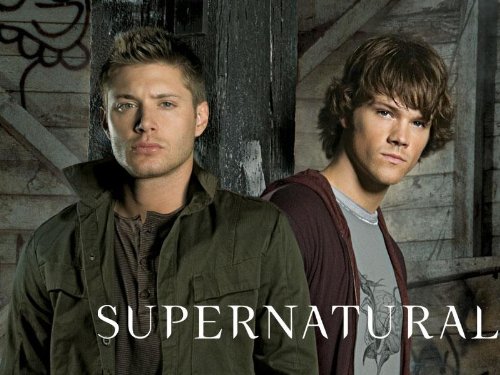Robert Johnston, author of Reel Spirituality, says that the "on-the-road" genre is the best vehicle for one thing: character development. Development is more easily able to be played off of other characters in a small space, especially if it involves both the protagonist and antagonist. There are few actual events occurring, so both the creators and the audience of the film or show are better able to pour their time and effort into a character's psyche and how it may change, rather than worry about big situations that they are put in. Therefore, the road trip genre definitely serves characters, and tends to leave plot in the background.
 Unfortunately, leaving plot behind and focusing on character development can be tricky. Take, for example, the CW's hit show Supernatural. For those who may not be familiar with it, the show is about two brothers who travel around the country and investigate cases of supernatural occurrences. Due to the nature of the show and the fact that the brothers travel all over the nation, the show is definitely a part of the "on-the-road" genre of media, and it's plain to see. Throughout the show, the characters grow a lot. They learn to soften their hard hearts, to be open to love, and to learn what community means. So the plot should take a backseat, right?
Unfortunately, leaving plot behind and focusing on character development can be tricky. Take, for example, the CW's hit show Supernatural. For those who may not be familiar with it, the show is about two brothers who travel around the country and investigate cases of supernatural occurrences. Due to the nature of the show and the fact that the brothers travel all over the nation, the show is definitely a part of the "on-the-road" genre of media, and it's plain to see. Throughout the show, the characters grow a lot. They learn to soften their hard hearts, to be open to love, and to learn what community means. So the plot should take a backseat, right?On the opposite end of the spectrum, take Mad Max: Fury Road. With a facet of the movie's many genres literally in the title, Mad Max:Fury Road is a wonderful example of strong development with little plot. It's a two-hour car ride. It's heavily saturated with violence, but the plot intentionally takes a bit of a back seat. For those who may not know, Mad Max: Fury Road is about people, in different stages of captivity, breaking free and trying to find some last shred of humanity. Throughout the course of the movie, not a whole lot happens as far as the plot is concerned. It's just life and the defense of life. But through that understated plot, enormous character development is made evident. The two main characters--Max and Furiosa--are able to let their guards down around each other, and even open up enough to tell each other their names. This development is so easy to spot because, in the middle of the movie, just about the only thing that happens is fighting and driving. And I love it.
So, be wary of the trickiness of the road trip genre. It's certainly a wonderful genre, but it's done wrong (really wrong) way too many times. So be conscious of the development, and don't be afraid to make the plot sit in the backseat. Or even stuff it in the trunk.

No comments:
Post a Comment